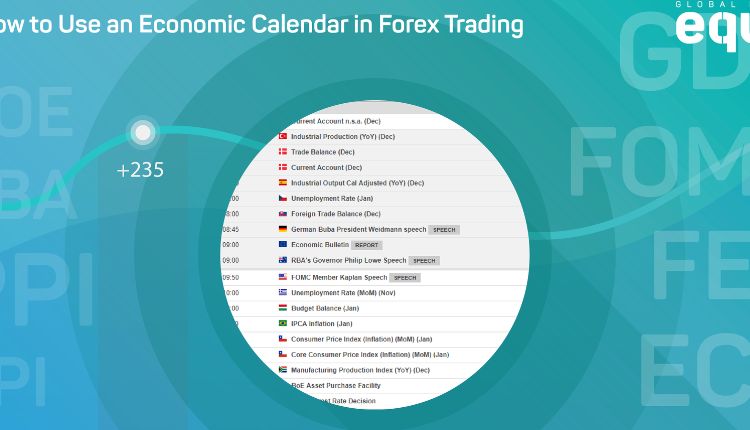Navigating The Economic Landscape: A Comprehensive Economic Calendar For Informed Decision-Making
Introduction:
In today’s fast-paced global economy, staying ahead of the curve is essential for making informed business and investment decisions. One valuable tool that can provide valuable insights is an economic calendar. By tracking key economic events and indicators, individuals and businesses can anticipate market movements, identify opportunities, and mitigate risks. This article aims to present a comprehensive economic calendar, highlighting its importance, key elements, and how it can be utilized to maximize profitability and minimize uncertainties.
I. The Significance Of An Economic Calendar
An economic calendar serves as a roadmap for understanding and predicting market dynamics. By keeping track of important economic events, such as central bank meetings, GDP releases, employment reports, and inflation data, market participants can gauge the health of economies, identify trends, and adjust their strategies accordingly. The calendar provides a centralized platform for individuals to access timely information and stay up to date with the latest economic developments.
II. Key Elements Of An Economic Calendar
- Event Descriptions: Each event listed on the economic calendar provides a brief description, outlining the nature and significance of the event. This helps individuals understand the potential impact on various sectors and financial markets.
- Date and Time: The calendar provides specific dates and times for each event, allowing market participants to plan their activities and allocate resources accordingly. It also aids in managing expectations by indicating when important announcements or reports will be made.
- Impact Indicators: Economic calendars often include impact indicators, such as low, medium, or high, to signify the potential impact of an event on the market. High-impact events have the potential to generate significant market volatility and should be closely monitored.
- Previous and Forecasted Data: Many economic calendars also provide historical data and forecasted values for key indicators. This information allows market participants to assess whether an upcoming release is likely to meet, exceed, or fall short of market expectations.
III. Utilizing An Economic Calendar For Decision-Making
- Identifying Trading Opportunities: By analyzing the economic calendar, traders can anticipate market movements and identify potential trading opportunities. For example, if an interest rate decision is expected, traders can adjust their positions accordingly, taking into account the potential impact on currency exchange rates or stock prices.
- Risk Management: An economic calendar helps individuals manage risk by providing crucial information that may affect their portfolios. By staying informed about upcoming events, investors can adjust their asset allocation and take appropriate hedging measures to protect against potential downside risks.
- Fundamental Analysis: Economic calendars are valuable tools for conducting fundamental analysis. By analyzing economic indicators and their historical trends, investors can gain insights into the overall health of economies and make informed decisions about asset allocation and long-term investments.
Conclusion:
In a rapidly changing economic landscape, an economic calendar plays a vital role in helping individuals and businesses make well-informed decisions. By providing a comprehensive overview of upcoming economic events and indicators, it enables market participants to anticipate market movements, identify opportunities, and manage risks effectively. By incorporating an economic calendar into their decision-making processes, individuals and businesses can gain a competitive edge and navigate the complexities of the global economy more confidently.
FAQs:
- How often should I consult the economic calendar? It is recommended to consult the economic calendar regularly, at least once a week. However, during periods of high market volatility or when important economic events are scheduled, it is advisable to check the calendar more frequently to stay well-informed.
- Where can I find a reliable economic calendar? There are several reputable financial websites and platforms that provide reliable economic calendars. Some popular options include Bloomberg, Investing.com, Forex Factory, and TradingView. It is important to choose a platform that offers accurate and timely information from trusted sources to ensure the reliability of the economic calendar data.



